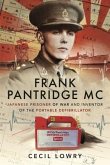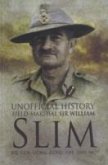A compelling biography of Frank Whittle, whose jet engine revolutionized aviation, reshaping travel and modern life forever. The invention by Whittle of the turbo-jet engine, and the determined effort to design, develop and demonstrate that such a novel new method of propulsion would replace piston engines in the air, was one of the most important technical achievements of the twentieth century. That one man accomplished this working with a small but dedicated team of engineers and craftsman in the middle of a war, and in the face of many doubters, was a truly monumental achievement. The jet engine envisaged by Frank Whittle, a young Royal Air Force cadet, changed aviation forever. It was an invention that has, in the years since, had the effect of shrinking the world we live in. We think nothing today of flying between continents in a few hours, when just a two or three generations ago this would have been a major expedition. In short, the jet engine, developed with great tenacity by Whittle, has made the world a village, and has introduced world-wide travel to ordinary people everywhere. This accomplishment was all the more remarkable given Whittle's humble background as the son of a highly skilled but largely uneducated mechanic and machinist. A young man from a working-class family, Frank Whittle wanted to become a pilot, but he was denied admission into the RAF due to his physical limitations. Nevertheless, he persisted until finally he was accepted on an air mechanic's (or fitter's) apprenticeship at RAF Cranwell. It was a course which was primarily used to train officer cadets. Cranwell included a flying training school and it was Whittle's secret hope that he may be one step closer to achieving his aim of learning to fly. The air mechanic's apprenticeship was a three-year course aimed at providing a thorough practical understanding of all aircraft structural components as well as a detailed knowledge of the different types of aircraft engines then in use. He was a diligent apprentice, and happily threw himself into every aspect of the rigorous training provided, while at the same time keeping an eye on the officer cadets on the flying courses. Inspired by his training, Frank Whittle developed an idea. He believed it was possible for aircraft to fly faster and higher - and he turned his vision into reality. This incredible accomplishment was not without considerable personal cost though, as Whittle had to face the realities of war, as well as personal and commercial issues that nearly turned his dream into a nightmare. In addition, this biography, written by someone who met Frank Whittle, includes details of his rather colourful personal life, which have not been previously documented.
Hinweis: Dieser Artikel kann nur an eine deutsche Lieferadresse ausgeliefert werden.
Hinweis: Dieser Artikel kann nur an eine deutsche Lieferadresse ausgeliefert werden.








